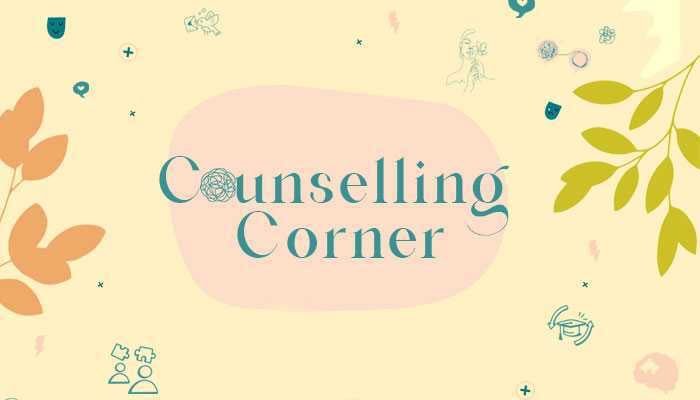
"I have tried my best to maintain a healthy relationship, but it's hard when it's just me who is putting in all effort," says a frustrated sister
November 27, 2024
Hi Haya,
I'm struggling to balance a healthy relationship with my younger siblings. They are extremely entitled and often cross their boundaries when talking to me. We're all in our 20s and don't have a major age gap between each other, but since I'm the eldest, I do feel that they must have a sense of respect towards me.
It may sound stupid to others who might disregard it as a trivial sibling issue, but the way they behave with me hurts me a lot sometimes. I want to be a gentle and understanding sister towards them, but with their often rude attitude all I feel is anger.
I have tried my best to maintain a healthy relationship, but it's hard when it's just me who is putting in all the effort. Please help me understand how to deal with this situation?
— A frustrated older sister

Dear elder sister,
I hear how challenging it must be to feel like you're carrying the weight of maintaining a healthy relationship with your siblings, especially when their behaviour is causing you distress. It's not at all silly to feel hurt by their actions; your feelings are valid, and it's important to recognise the emotional toll this is taking on you.
As the eldest, I hear a sense of demand and responsibility for being a certain way and I see how much of taking on that role is taking a toll on you. It would be helpful for you to reflect on the role of responsibility in your relationships.
As the firstborn, you may have unconsciously internalised the role of a caretaker, protector, or even a parental figure for your younger siblings. This role often comes with implicit expectations — both from your family and yourself — that you should be responsible, mature, and setting an example. This can create an internal conflict because, while you might feel this responsibility, your siblings might not acknowledge or reciprocate it, which can lead to feelings of frustration and anger.
Reflect on your early family environment and how roles and boundaries were established. What messages did you receive as the eldest sibling? Were there implicit expectations placed on you? Who has laid these expectations on you that you are carrying around with so much burden? When you feel disrespected what is being triggered for you? Your triggers are your teachers and relationships are a mirror to us, showing us what we are not seeing within. A wound that is coming up to be healed. Understanding these dynamics can help you become more aware of how they are influencing your current interactions with your siblings.
An idealised image of the eldest sibling can often conflict with the reality of how you’re treated. If your siblings don’t honour these expectations, it may trigger feelings of resentment and disappointment, as you feel your efforts to maintain respect and harmony are not being acknowledged. This can result in an emotional gap where you feel you’re doing all the work to maintain the relationship, while they don't seem to make the same effort.
It’s important for you to know that respect in relationships is both ways and relationships are built with mutual care and understanding. Being the eldest doesn’t mean you must always take on the emotional labor of maintaining harmony—your siblings also need to contribute to a healthy dynamic.
While I see you are putting in a lot of effort to maintain peace, it’s essential to communicate your needs and boundaries clearly with your siblings. Let’s take a look at what we can do:
- Express how you feel - when you express your feelings to them, focus on your experience (e.g., “When you speak to me this way, I feel disrespected and hurt”) rather than blaming or criticising them.
- Audit your current boundaries - What are your current boundaries? When they are disrespectful towards you, how do you respond/behave towards them? That may give you insight on what your current boundaries are.
- Get clear on the kind of boundaries you will create when disrespected - Be very clear with yourself about what you’re willing to tolerate and what you’re not. What specific behaviours from your siblings make you feel disrespected? Understanding these triggers is key.
- Communicate your boundaries: Once you’ve defined your boundaries, think about how you can communicate them calmly and assertively. You might say something like, “I understand where you’re coming from, but I need to ask that we speak to each other with more respect, or I’ll need to step away from this conversation.”
- Express your boundaries via your behaviour: The boundaries you decide need to be reflective In your behaviour when crossed
- Shift your focus: Instead of focusing on changing your siblings’ behaviour, focus on what you can do to change how you respond. It’s not about controlling them, but controlling how you react to them. This could mean taking a break during tense moments, practicing deep breathing, or finding a healthy outlet for your anger.
- Empower yourself to walk away: If you’ve communicated your boundaries and your siblings continue to cross them, it’s okay to step back from situations that don’t respect your limits. Sometimes, disengaging is the most powerful way to show respect for yourself and your needs.
- Reframe the situation: Instead of seeing it as a struggle to change your siblings, reframe it as an opportunity to strengthen your own boundaries and communication skills. You’re learning valuable lessons in how to manage difficult relationships, which will serve you well in other areas of life too.
Remember, you can't control others, but you can explore and recreate your patterns and beliefs, control your actions, your reactions, and how you show up in your relationships. By empowering yourself to take these steps, you can shift the dynamic and create more peace in your interactions and remember that change takes time.
— Haya

Haya Malik is a psychotherapist, Neuro-Linguistic Programming (NLP) practitioner, corporate well-being strategist and trainer with expertise in creating organisational cultures focused on well-being and raising awareness around mental health.
Send her your questions to [email protected]
Note: The advice and opinions above are those of the author and specific to the query. We strongly recommend our readers consult relevant experts or professionals for personalised advice and solutions. The author and Geo.tv do not assume any responsibility for the consequences of actions taken based on the information provided herein. All published pieces are subject to editing to enhance grammar and clarity.












